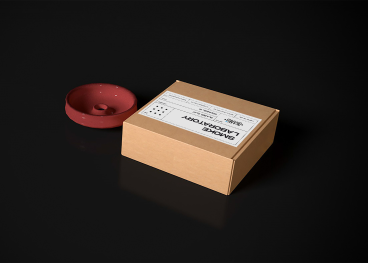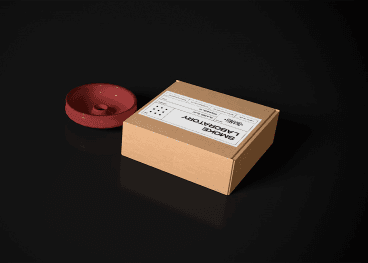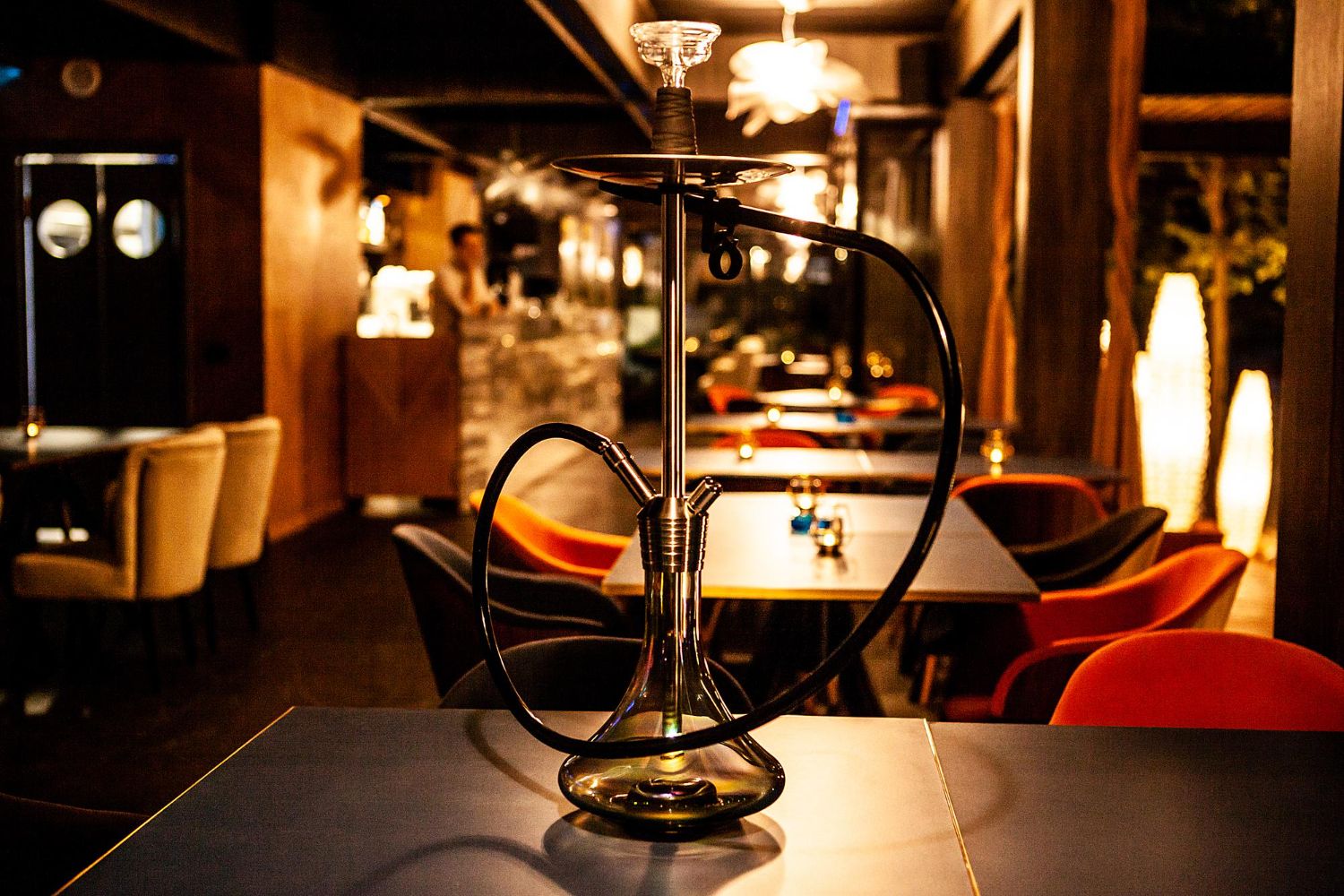
How to Open a Hookah Lounge: Building a Successful Business
Smoke swirls upward as friends laugh around a table, sharing stories over the gentle bubbling of water pipes. This scene plays out nightly in hookah lounges across the country – social hubs where patrons unwind and connect. The rising popularity of these establishments presents a lucrative business opportunity for entrepreneurs. Ready to transform your passion for hookah culture into a thriving business? Let's explore the essential steps of how to open a hookah lounge that stands out from the competition and cultivates a loyal customer base.
Conduct Market Research
Understanding Your Target Audience
Before diving into opening a hookah lounge, thoroughly research your potential clientele. College students, young professionals, and cultural enthusiasts typically form the core customer base. Gather data on age ranges, spending habits, and preferences through surveys or focus groups. Note which hookah flavors, atmosphere types, and additional services might appeal to local customers.
Analyzing the Competition
Visit existing lounges in your area to evaluate their strengths and weaknesses. Pay attention to:
- Menu variety and pricing structure
- Ambiance and décor
- Customer service quality
- Special events or promotions
- Operating hours and peak times
This reconnaissance helps you identify opportunities to differentiate your lounge in the marketplace.
Assessing Market Demand
Gauging whether your community can support another hookah business. Research population demographics, cultural diversity, and the prevalence of similar establishments nearby. Look for untapped potential – perhaps an area with a large Middle Eastern population but few authentic lounges or a college town lacking late-night social venues.
Develop a Comprehensive Business Plan
Executive Summary
Create a concise overview of your vision that captures the essence of your lounge. Include your mission statement, such as providing an authentic cultural experience or establishing a premier social destination. Outline specific, measurable business objectives – reaching profitability within 18 months, for example, or capturing 20% of the local market share.
Market Analysis
Incorporate your market research findings into a detailed analysis section. Profile your ideal customers, describing their preferences and habits. Map out your competitive advantage – perhaps you'll offer rare tobacco blends or create a uniquely themed environment that appeals to your target demographic.
Marketing and Sales Strategies
Outline your approach to building a customer base:
- Social media campaigns featuring eye-catching hookah setups
- Opening night events with special promotions
- Loyalty programs to encourage repeat visits
- Collaborations with local businesses or influencers
- Themed nights to attract different customer segments
Financial Projections
Develop realistic forecasts for your first three years of operation. Include:
- Monthly revenue projections
- Expected profit margins on tobacco products and food/beverages
- Cash flow analysis
- Break-even timeline
- Contingency plans for slower-than-expected growth
Your hookah business plan should demonstrate a path to profitability while accounting for seasonal fluctuations and economic variables.
Operational Plan
Detail the daily functioning of your lounge:
- Hours of operation
- Staffing requirements and roles
- Inventory management systems
- Supplier relationships and ordering protocols
- Quality control measures
- Cleaning and maintenance procedures
Secure Necessary Funding
Estimating Startup Costs
When starting a hookah lounge, preliminary financial planning is crucial. Typical startup expenses include:
- Location renovation and decoration: $15,000-$50,000
- Hookah equipment and inventory: $5,000-$15,000
- Furniture and fixtures: $10,000-$30,000
- Ventilation systems: $5,000-$20,000
- POS system and technology: $2,000-$5,000
- Initial marketing campaign: $3,000-$8,000
- Licenses and permits: $1,500-$10,000
- Working capital for first 6 months: $20,000-$40,000
These figures vary based on location, size, and concept sophistication.
Exploring Funding Options
Consider these financing avenues:
- Small business loans from banks or credit unions
- SBA-backed financing with favorable terms
- Angel investors interested in hospitality ventures
- Friends and family investment rounds
- Business credit lines for ongoing expenses
- Equipment financing for costly ventilation systems
Financial Planning
Implement robust financial management practices from day one. Establish separate business accounts, adopt professional accounting software, and consider hiring a part-time bookkeeper familiar with hospitality businesses. Set aside emergency reserves to weather unexpected challenges during your initial months of operation.
Choose an Ideal Location
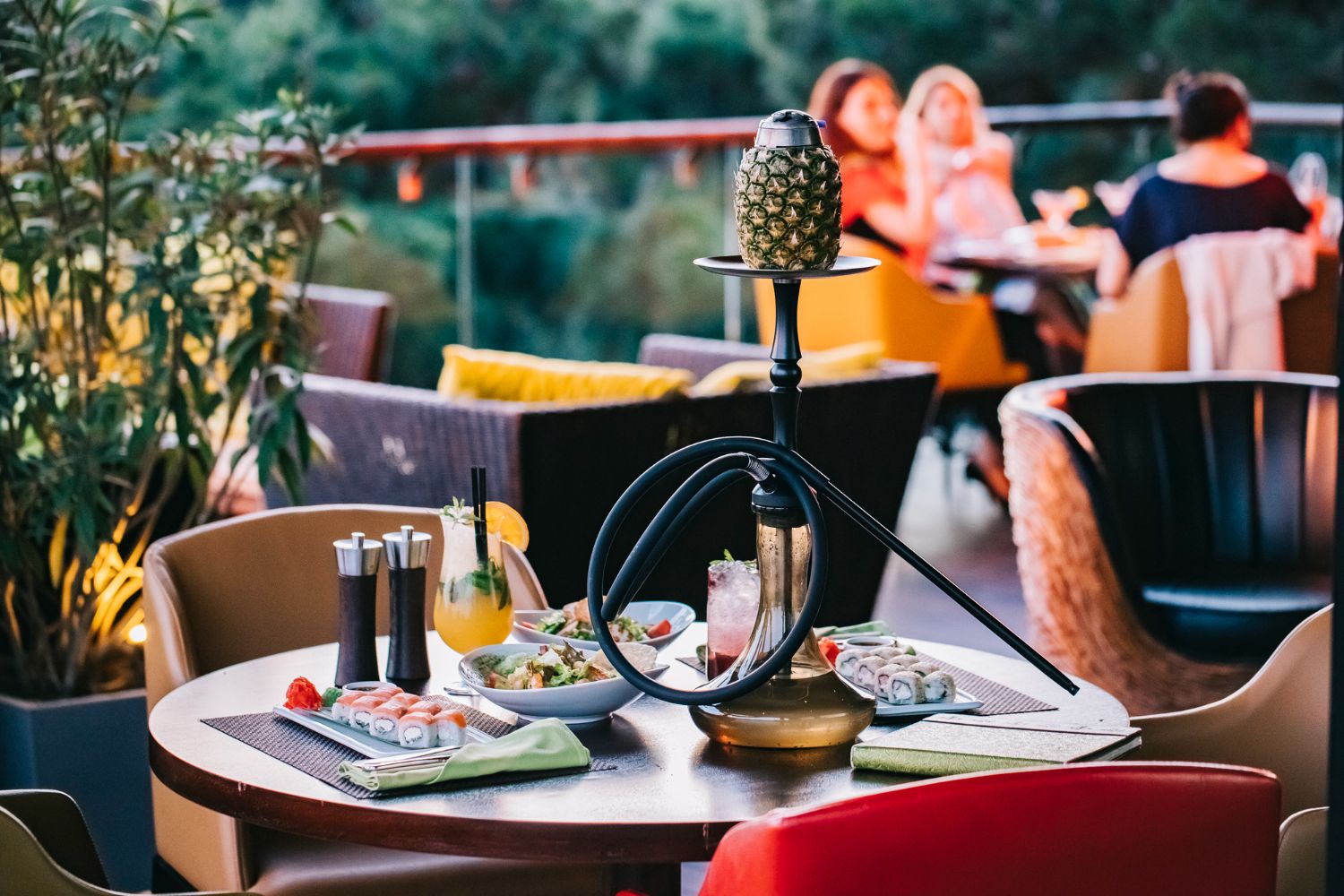
Accessibility and Visibility
Select a location that balances visibility with appropriate zoning. Prime spots include:
- Near entertainment districts with evening foot traffic
- Close to college campuses or young professional neighborhoods
- Areas with complementary businesses like restaurants and bars
- Locations with adequate parking or public transportation access
Research local zoning ordinances thoroughly before signing a lease. Some municipalities have specific restrictions on tobacco-related businesses or limit them to certain districts. Contact your city planning department to confirm that hookah lounge requirements are met by your chosen location.
Evaluating Lease Agreements
When reviewing potential properties, consider the following:
- Lease duration and renewal options
- Rent escalation clauses
- Responsibility for property improvements
- Restrictions on business operations or hours
- Landlord's policies on smoke-related businesses
Negotiate terms that allow flexibility as your business grows, and consider hiring a real estate attorney to review contracts before signing.
Obtain Required Licenses and Permits
Business License
Register your business structure (LLC, corporation, or partnership) with state authorities. Then, obtain a general business license from your local government. This foundational step establishes your legal right to operate.
Tobacco Retail License
A hookah license or tobacco retail permit is mandatory for selling tobacco products. Application procedures vary by location but typically require:
- Proof of business registration
- Detailed floor plans
- Age verification procedures
- Fee payment (typically $100-$500 annually)
Some jurisdictions limit the number of tobacco licenses available, so research this early in your planning.
Health and Safety Compliance
Schedule inspections with your local health department to ensure compliance with sanitation standards, particularly if serving food or beverages. Fire department approval is also essential, with special attention to your ventilation system and emergency exits.
Alcohol License (If Applicable)
If you plan to serve alcoholic beverages, prepare for a more complex licensing process. Liquor licenses can significantly impact your business model through:
- Higher insurance requirements
- Additional staff training needs
- Stricter operational regulations
- Increased security considerations
Design an Inviting Lounge Ambiance
Interior Design and Layout
Create an atmosphere that balances authenticity with comfort. Consider:
- Comfortable seating arrangements that facilitate conversation
- Semi-private booths for intimate gatherings
- Open areas for larger groups
- Authentic décor elements that reflect hookah traditions
- Strategic placement of service stations for efficient operation
Work with designers experienced in hospitality spaces to maximize both aesthetics and functionality.
Lighting and Music
Develop a sensory experience that complements hookah enjoyment:
- Adjustable lighting systems that create the right mood at different times
- Carefully curated playlists that match your brand persona
- Consideration of acoustics to allow conversation while maintaining atmosphere
- Potential for live music or DJ performances for special events
Ventilation Systems
Invest in commercial-grade ventilation – perhaps the most critical infrastructure element when opening a hookah lounge. A proper system should:
- Extract smoke efficiently without creating uncomfortable drafts
- Maintain comfortable temperature and humidity levels
- Comply with local air quality regulations
- Operate quietly enough to preserve the social atmosphere
- Include adequate maintenance access for regular servicing
Many new lounge owners underestimate ventilation costs and complexity. Consider consulting with HVAC specialists experienced in tobacco establishments or restaurants. Some municipalities require specific filtration technology that can capture particulate matter before air is exhausted outside. Modern systems often feature individual adjustable vents at tables, giving customers control over their immediate airflow while maintaining overall air quality. This customization enhances customer comfort and distinguishes your establishment from competitors who rely on basic overhead systems.
Curate a Diverse Menu
Hookah Flavors
Build a diverse menu of tobacco options:
- Traditional flavors for purists (mint, double apple, grape)
- Exotic blends for adventurous customers
- Premium lines for connoisseurs
- Non-tobacco alternatives for health-conscious patrons
Educate your staff on each product's characteristics to provide knowledgeable recommendations. Those interested can find quality products through a reputable hookah buy source.
Beverages and Food Options
Complement the hookah experience with appropriate refreshments:
- Traditional teas and Turkish coffee
- Fresh fruit juices and crafted non-alcoholic beverages
- Light appetizers and shareable plates
- Desserts that pair well with hookah flavors
Simple food items can significantly increase per-customer spending while enhancing the overall experience.
Pricing Strategy
Structure your pricing to balance profitability with perceived value:
- Tiered pricing for different hookah qualities and experiences
- Package deals for groups
- Happy hour specials during slower periods
- Membership options for regular customers
Hire and Train Competent Staff
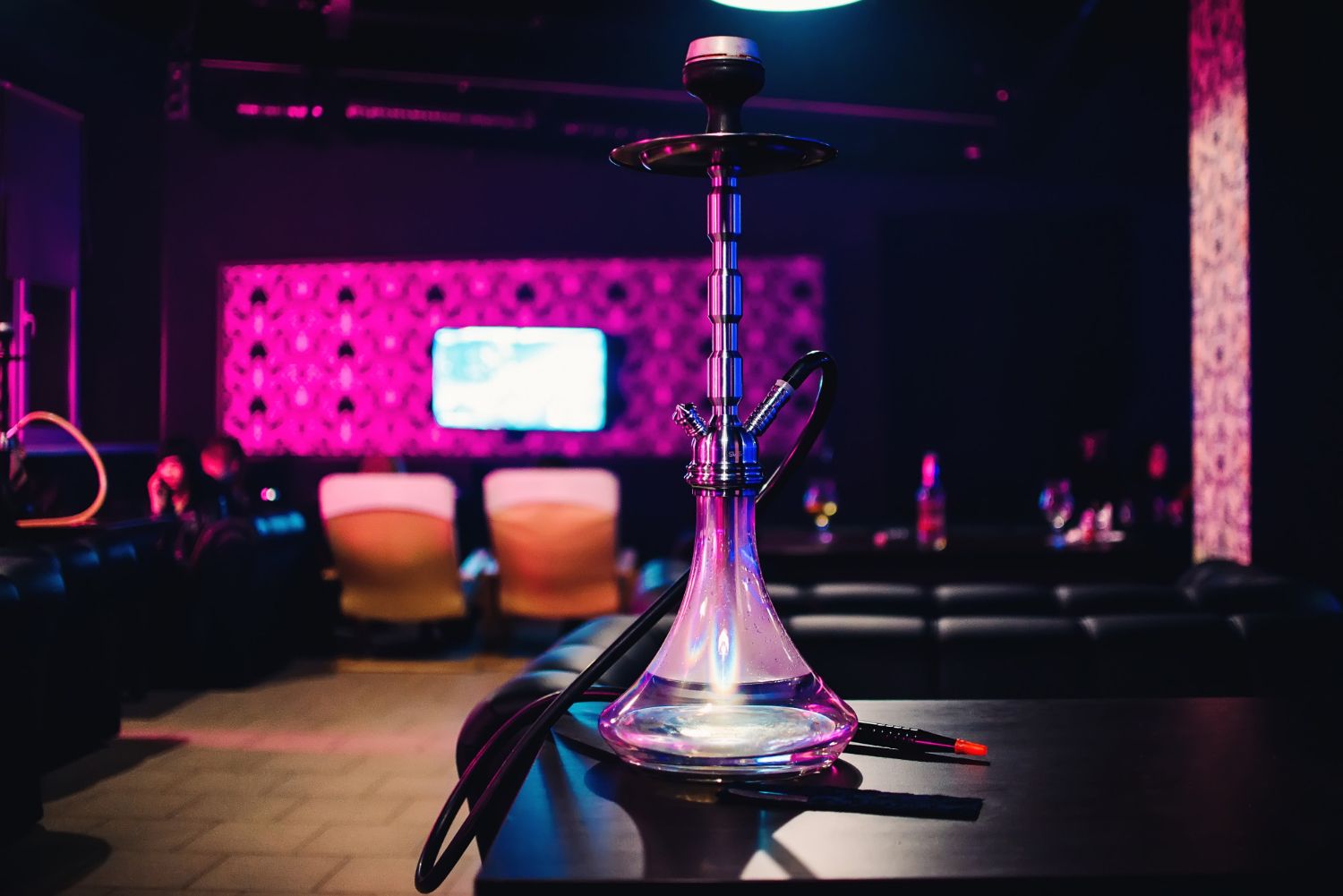
Recruitment
Assemble a team with the right mix of skills and personality:
- Hookah specialists with product knowledge
- Service-oriented hosts and servers
- Responsible management personnel
- Kitchen staff (if offering food beyond basics)
Look for candidates with hospitality experience and cultural knowledge related to hookah traditions.
Training Programs
Develop comprehensive training covering:
- Proper hookah preparation techniques
- Food safety and sanitation procedures
- Customer service excellence
- Age verification protocols
- Emergency procedures
Regular refresher training keeps standards high as your business matures.
Employee Retention Strategies
Minimize costly turnover through:
- Competitive compensation structures
- Growth opportunities within the business
- Team-building activities
- Recognition programs
- Clear communication of expectations
Implement Effective Marketing Strategies
Branding and Promotion
Establish a distinctive identity that resonates with your target audience:
- Professional logo and consistent visual elements
- Compelling website showcasing your unique atmosphere
- Professional photography of your space and offerings
- Targeted local advertising in relevant publications
- Grand opening promotions to generate initial buzz
Clearly communicate what makes your establishment unique – what is hookah lounge experience customers can expect that differs from competitors.
Social Media Engagement
Build a digital presence that showcases your lounge's appeal:
- Instagram-worthy hookah presentations and interior design
- Facebook event promotions for special nights
- Engagement with local influencers and community figures
- Customer photo sharing incentives
- Behind-the-scenes content showing preparation and craftsmanship
Digital visibility drives foot traffic in the hookah industry. Develop a content calendar that highlights different aspects of your business – flavor spotlights on Mondays, staff introductions on Wednesdays, and customer experiences on weekends.
Community Involvement
Establish your lounge as a valued local business through:
- Participation in community events and festivals
- Sponsorship of relevant cultural activities
- Collaboration with neighboring businesses
- Hosting charity events or fundraisers
- Building relationships with cultural organizations
Monitor Operations and Customer Feedback
Performance Evaluation
Track key metrics to guide business decisions:
- Sales patterns by day and time
- Popular flavor trends
- Table turnover rates
- Average customer spend
- Cost of goods sold percentages
Use these insights to optimize inventory, staffing, and promotions.
Customer Feedback Systems
Gather input systematically through:
- Digital feedback forms with incentives for completion
- Active social media monitoring
- Direct server interactions
- Comment cards or digital kiosks
- Follow-up with regular customers
Continuous Improvement
Stay ahead of industry developments by:
- Attending trade shows and industry conferences
- Following hookah trends from international markets
- Refreshing your menu seasonally
- Updating décor and amenities periodically
- Investing in staff development and education
Your Journey to Hookah Lounge Success
Opening a successful hookah lounge combines cultural authenticity with sharp business acumen. The path requires careful planning, from understanding what do you need to open a hookah lounge legally to creating an ambiance that keeps customers returning. While challenges exist – regulatory hurdles, startup costs, and operational complexities – the rewards of creating a thriving social space can be substantial. Draw inspiration from established venues but forge your own unique identity. With dedication to exceptional customer experiences and attention to business fundamentals, your hookah lounge can become a cornerstone of local nightlife and a profitable enterprise for years to come.
